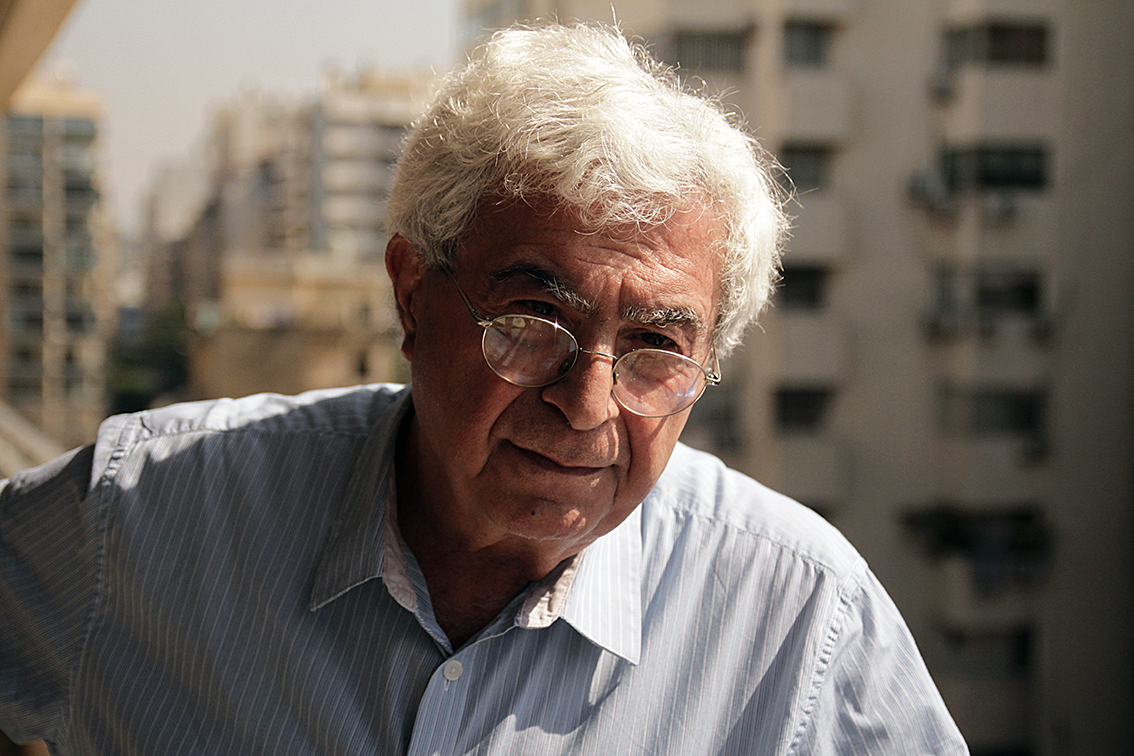Interview with shortlisted author Elias Khoury
13/04/2017

Where were you at the shortlist announcement? What was your reaction?
I was in my office at the Palestinian Studies Foundation when I got a call from Algeria from Rana Idris, the director of Adab publishing house, to inform me that Children of the Ghetto was on the shortlist. I was happy because the story of the Lud ghetto with its human dimensions deserves a place in both Arab and human memories.
What does it mean to you to be shortlisted?
The truth is that once the novel is published it no longer belongs to its author, but rather to the relationship readers build with the novel’s characters.
What are you reading now? Which writers influenced you as a novelist?
I am currently reading Blindness by Saramago, and re-reading Why did you leave the horse alone? by Mahmoud Darwish.
The book with the most influence on me has been A Thousand and One Nights, and along with that I can put Al-Mutannabi and the novels of Dostoyevsky, Flaubert, Ghassan Kanafani and Emile Habibi.
When did you begin writing Children of the Ghetto?
Fifteen years ago the main features of this novel began taking shape, but I had to wait, for writing is the art of waiting. I waited for 11 years, during which I wrote As Though She Were Sleeping and Sinalcol.
Why did you choose to write about this massacre?
I didn’t choose a massacre to write about, I went to the ghetto and there I saw how life is born from death. I only wrote about the massacre in order to write about the survivors; life is stronger than death and death is but a metaphor for life.

In the novel, Adam Danun decides to write “as a reader”. That is where the greatest joy lies. Do you approach writing in the same way?
Writing for me is a journey to places I don’t know. In these places, I learn to read what has been erased. I write as if I were reading a world whose details I must discover, whose characters I must meet and have long term relationships with, so that I can hear their words and writings.
What is your next project after this novel?
My project is to finish this novel; the hero and narrator of this story is not done yet, he wants to tell more stories.
Read an extract of Children of the Ghetto – My Name is Adam below:
I don’t want to submerge myself in the days of the ghetto now: that’s a story I need to write from beginning to end, at one go, and without digressions. I’ve told Ma’moun’s version of my first father’s story, which has no story, because of my feeling that I’m the murdered son, and that my father was my murderer.
Perhaps in saying this I’m being somewhat unjust towards the man, whom I didn’t know. He was a victim and I’m the victim of a victim. I don’t care for such justifications. Being a victim doesn’t grant one the right to make victims of others – on the contrary, it makes one doubly responsible for them. This is what I tried to explain so many times to my Israeli Jewish friends, though with no great success. True, to be honest, my beloved Dalia once surprised me by adopting the same idea and, indeed, expressing it eloquently, when she said, “The Palestinians are the victim’s victim and the Jewish victim has no right to behave as his own executioners did. That’s why I’m not just Jewish, but Palestinian too.”
We were walking that day on the shore at Jaffa, close to the Cemetery by the Sea, where the Palestinian academic and writer Ibrahim Abu-Lughod is buried. I told her about this man whose voice still rings in my ears and of how, after he died, his daughter Lila took him by car from Ramallah to Jerusalem so that his death could be announced in that city and he could claim, as a non-Jewish American, the right to be buried in Israel, which is to say, in the cemetery where his fathers and forefathers had been buried. An expression of grief passed over Dalia’s brown, oval face and she announced that she had become a Palestinian.
Read this interview in Arabic here
